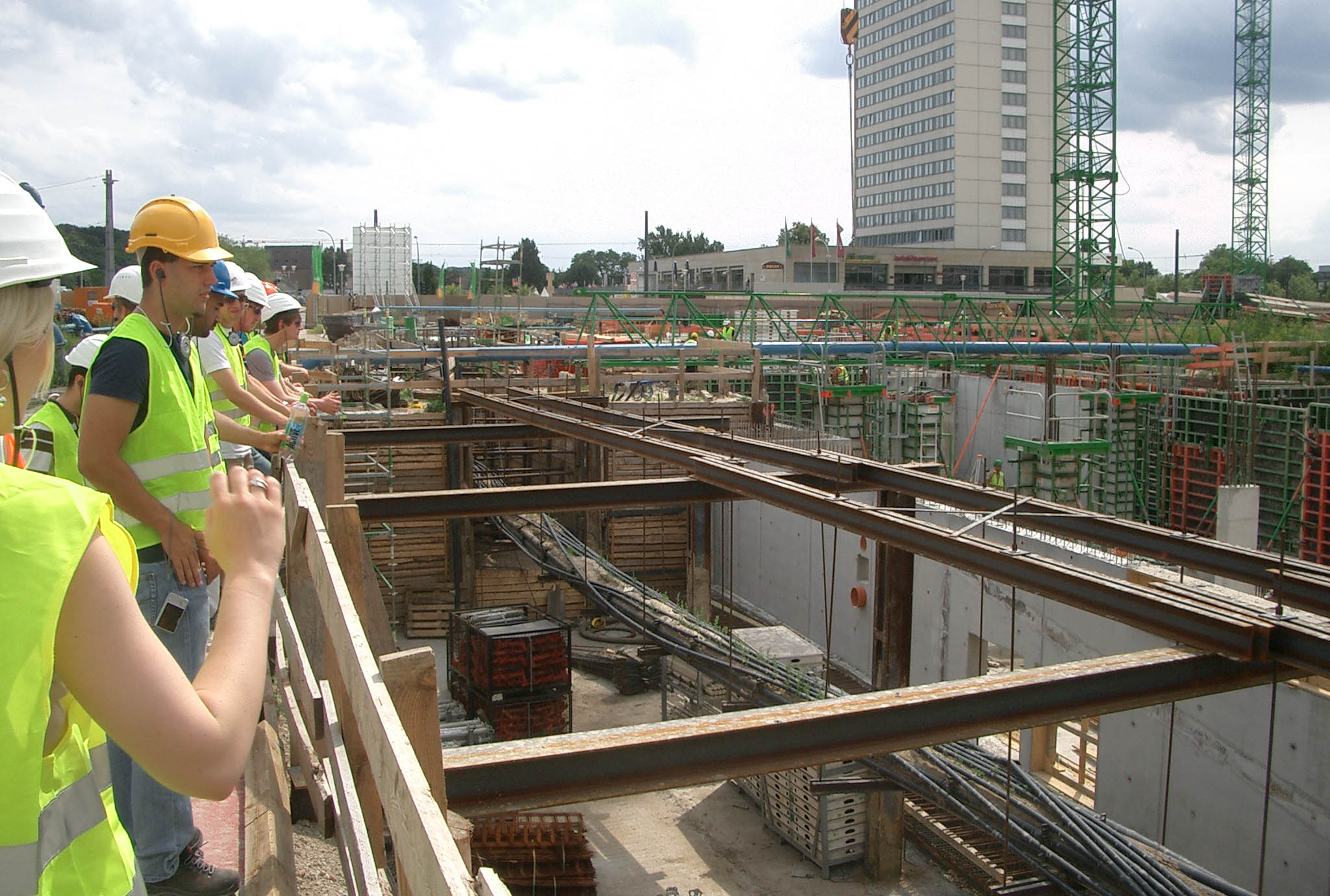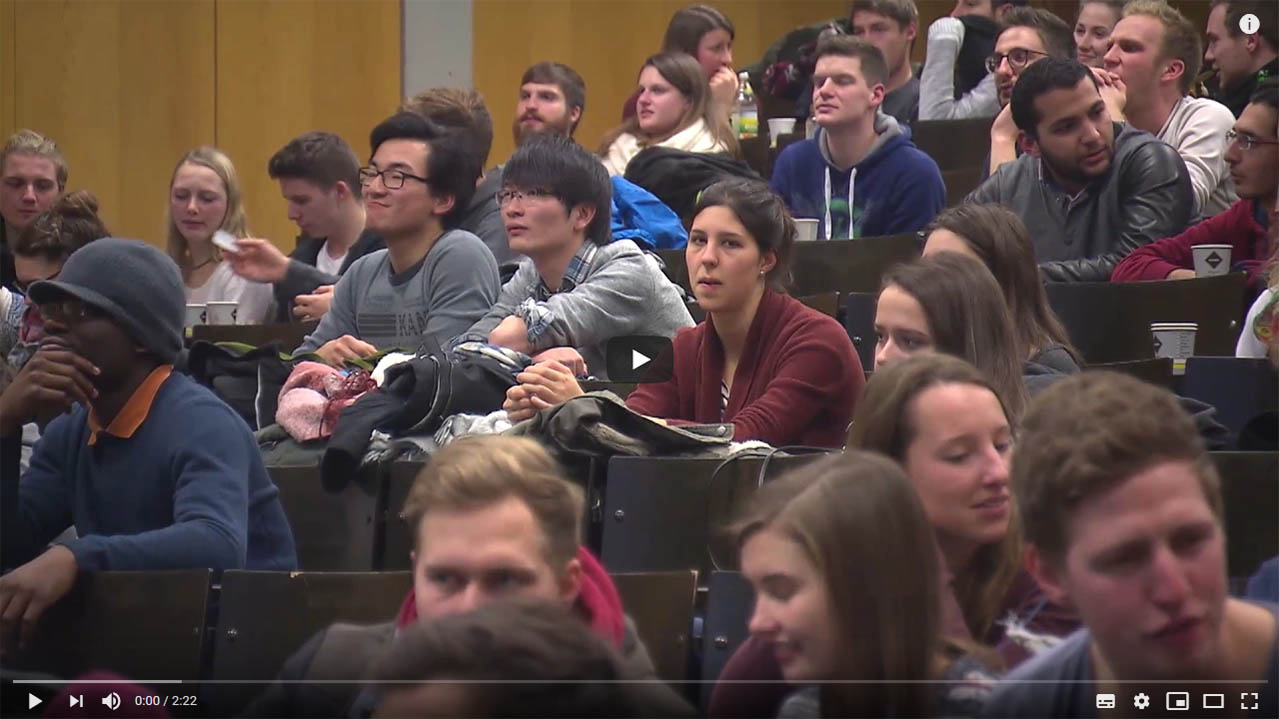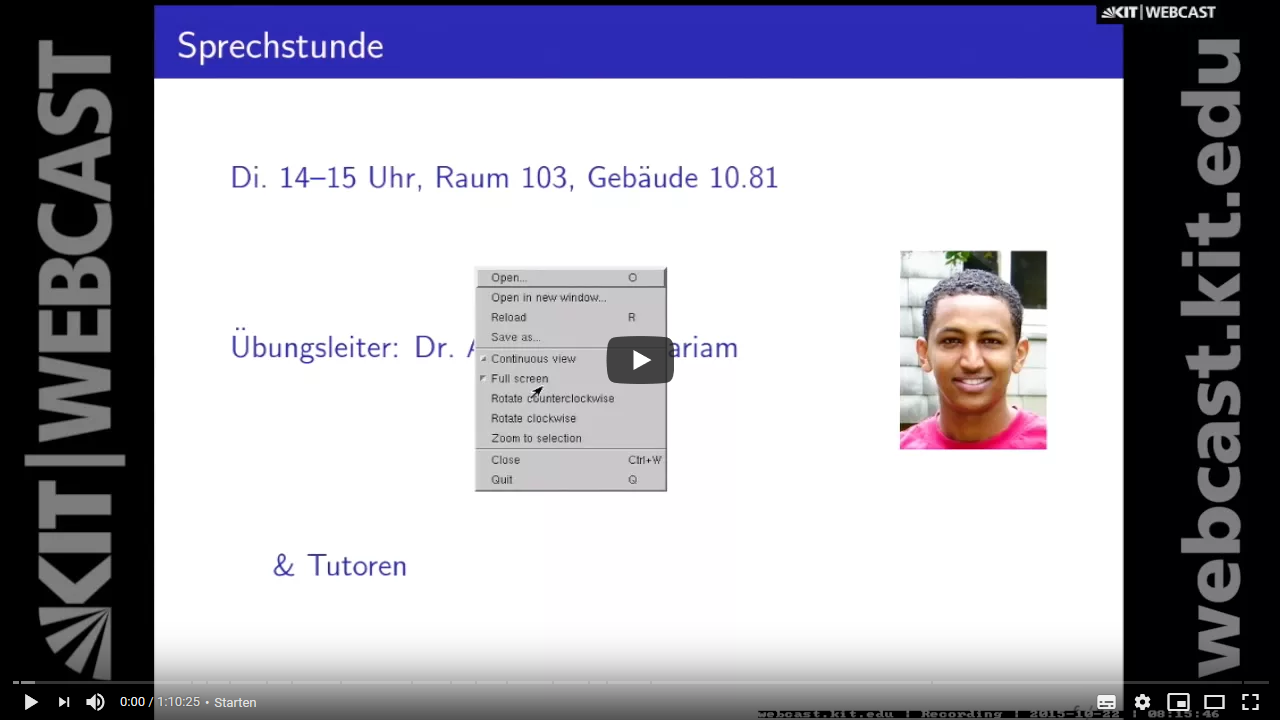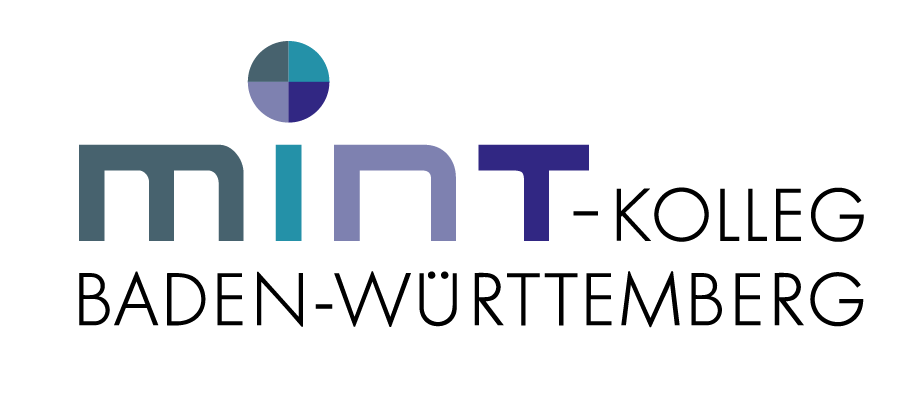Degree: Bachelor of Science (B.Sc.)
Regular program length: 6 semester (full-time program)
Credit points (ECTS): 180 credit points
Language of instruction: German
Higher semester: no
Higher semester: winter and summer term
First semester: September 15
Higher semester: September 15 for winter term, March 15 for summer term
First semester: July 15
Higher semester: July 15 for winter term, January 15 for summer term
Studiengangsbeschreibung
Worum geht’s?
Das Bauingenieurwesen ist eine Ingenieurwissenschaft, die sich mit Konzeption, Planung, Entwurf, Konstruktion, Berechnung, Herstellung und dem Betrieb aller Arten von Bauwerken beschäftigt, die für unsere Gesellschaft relevant sind. Dazu zählen Gebäude des Hoch-, Verkehrs-, Tief- und Wasserbaus, Anlagen und Infrastrukturen. Im Studium lernst du diese Arten von Bauwerken zu entwerfen, ressourcen- und energieeffizient zu planen, zu berechnen und sicher, wirtschaftlich und umweltschonend zu bauen. Du beschäftigst dich mit verschiedenen Baustoffen, Baukonstruktionen und natürlich der Baustatik. Du wirst auch an soziale, ökologische und ökonomische Aspekte des Bauens sowie ressourcen- und energieeffiziente Fragestellungen herangeführt. Insgesamt erhältst du einen Überblick über den gesamten Planungs- und Bau- und Instandhaltungsprozess eines Bauwerks, oder kurz: über dessen gesamten Lifecycle.
Program structure
During your studies, you have various subjects, which consist of one or more modules. A module deals with a specific topic and consists of one or more courses. In the module handbook for your degree program, you will find a description of the modules and their subject assignment as well as a study plan. This gives you an orientation as to which courses you should attend in which semester in order to complete your studies within the standard period of study. It takes into account a balanced distribution of courses over the individual semesters. It also ensures that you are first taught the important basics before moving on to more advanced topics. Your individual course of study may differ from this.
Pflichtfächer im Grundlagenstudium:
- Mechanik (28 LP): Hier lernst du etwas über die Statik starrer Körper, Festigkeitslehre, Dynamik und Hydromechanik. Es handelt sich dabei um wesentliche Aspekte der Mechanik im Bauingenieurwesen.
- Mathematik (25 LP): Im Bauingenieurwesen ist mathematisches Können unerlässlich. Daher lernst tauchst du hier tief ein in Analysis und Lineare Algebra, Integralrechnung und Funktionen mehrerer Veränderlicher, Angewandte Statistik und Differentialgleichungen.
- Baustoffe und Baukonstruktionen (21 LP): Dieses Fach erlaubt dir erste Einblicke in die Bedeutung von Baustoffen für die Konstruktion von Gebäuden. Hierzu zählen auch Bauphysik und Baukonstruktionslehre.
- Ingenieurwissenschaftliche Grundlagen (10 LP): Dieses Fach vermittelt Grundlagen in Projektmanagement, Geologie im Bauwesen und Bauinformatik. Weitere ingenieurwissenschaftliche Grundlagen sind wählbar, z.B. Bauchemie und Vermessungskunde.
- Überfachliche Qualifikationen (6 LP): Hier kannst du relativ frei nach deinen Interessen Veranstaltungen wählen und deine Kompetenzen verbessern, z.B. aus dem Lehrangebot des House of Competence, Sprachenzentrum oder dem interdisziplinären Angebot des FORUM.
Pflichtfächer im Grundfachstudium:
- Baustatik (10 LP)
- Konstruktiver Ingenieurbau (14 LP)
- Wasser und Umwelt (12 LP)
- Mobilität und Infrastruktur (12 LP)
- Technologie und Management im Baubetrieb (11 LP)
- Geotechnisches Ingenieurwesen (11 LP)
- Ingenieurwissenschaftliche Ergänzung (8 LP)
Der Studiengang ist modular aufgebaut und gliedert sich in ein dreisemestriges Grundstudium, in dem ingenieurwissenschaftliche Grundlagen wie Mechanik, Mathematik und Baustoffkunde vermittelt werden, sowie ein dreisemestriges Grundfachstudium, das vertiefende Module in Bereichen wie Konstruktiver Ingenieurbau, Wasser und Umwelt, Mobilität und Infrastruktur, Technologie und Management im Baubetrieb sowie Geotechnisches Ingenieurwesen umfasst. Alle Fächer sind vorgegeben (Pflichtfächer), im Grundfachstudium hast du im Fach Ingenieurwissenschaftliche Ergänzung die Möglichkeit zwischen verschiedenen Modulen zu wählen.
Praktikum (freiwillig)
Achtung: Im Rahmen des Bachelorstudiums musst du kein Baupraktikum nachweisen. Es wird aber dringend empfohlen, um praktische Erfahrungen zu sammeln. Ein Praktikum kann in Betrieben oder Unternehmen der Bauwirtschaft absolviert werden, die mit der Planung, Berechnung, Ausführung oder dem Betrieb baulicher Maßnahmen oder Anlagen operativ befasst sein. Das freiwillige Praktikum sollte sinnvollerweise in der zweiten Hälfte des Studiums eingeplant werden. Ein Pflichtpraktikum gibt es nicht.
Auslandsaufenthalte
Das KIT bietet vielfältige Optionen für Auslandsaufenthalte, von einzelnen Lehrveranstaltungen bis hin zum Auslandsjahr in Übersee. Insbesondere wenn du an einem längeren Auslandsaufenthalt interessiert bist, ist es ratsam, dich frühzeitig beim International Students Office oder direkt bei der KIT-Fakultät für Bauingenieur-, Geo- und Umweltwissenschaften über die Outgoing-Möglichkeiten zu informieren.
Bachelorarbeit
Am Ende deines Bachelorstudiums fertigst du deine Bachelorarbeit an, eine wissenschaftliche Arbeit, die es dir ermöglicht, dein erlangtes Wissen und deine Fähigkeiten anzuwenden und zu vertiefen. Normalerweise behandelt sie ein spezifisches Thema aus deinem Studienfach und erfordert eigenständige Forschung, Analyse und das Verfassen einer schriftlichen Ausarbeitung. Die Bearbeitungsdauer der Bachelorarbeit beträgt 3 Monate. Zur Bachelorarbeit gehört auch eine Präsentation deiner Ergebnisse in Form eines Vortrags.
Weitere Informationen
Außer dem Modulhandbuch ist unsere Studiengangbroschüre eine nützliche Informationsquelle. Sie behandelt auch Themen wie Bewerbungsverfahren, Studieneinstieg und Berufsperspektiven.
Qualification profile of the graduate
The study program Civil Engineering at the Karlsruhe Institute of Technology (KIT) with the degree Bachelor of Science (B.Sc.) provides a fundamental-, research- and practice-oriented qualification in all professional fields of civil engineering.
Civil engineers design, plan, calculate, construct, manage and maintain all kinds of buildings and infrastructure required by our society. This very wide range of their professional activities is expressed by the job title 'Civil Engineer'.
The six-semester Bachelor's program is structured in the two phases Basic Studies and Basic Subject Studies, each with a duration of three semesters. In the Basic Studies the fundamentals of engineering science are imparted particularly in the subjects Mechanics, Mathematics as well as Building Materials and Structural Design. Further basic skills are gained specifically in the subject Interdisciplinary Qualifications. In this subject among others, skills in communication and teamwork can be credited, obtained in an internship which is voluntary but strongly recommended. In the Basic Subject Studies the subject-related basic knowledge in the major fields of the professional activity of a civil engineer is imparted. These are allocated to the foci 'Structural Engineering', 'Water and Environment', 'Mobility and Infrastructure', 'Technology and Management in Construction Operation' as well as 'Geotechnical Engineering'. The students show by their Bachelor's Thesis that they are able to work by themselves and in limited time with scientific methods on a technical problem, to comprise the essential contents and results clearly structured in a written text and to present them in an oral presentation.
Having passed the Bachelor's program at the Karlsruhe Institute of Technology (KIT), the graduates attained the scientific qualification for starting a master degree program in Civil Engineering or a related field. They have knowledge and master methods of the entire range of civil engineering. Therefore, they are able to deepen themselves later in every shaping of the professional profile and to become acquainted with technical problems mostly by themselves. They think holistically and thus they harmonize social, ecological and economic aspects in order to develop problem solutions. Their strength is a sound and up to-date technical knowledge which is supplemented by good teamwork and communication skills.
Berufsperspektiven
Fachkräfte mit einem Abschluss in Bauingenieurwesen haben hervorragende Berufsperspektiven und viele Tätigkeitsfelder. Man findet sie in leitender Funktion in folgenden Branchen: Hoch- und Tiefbau, in Ingenieurbüros, öffentliche Verwaltung, Consultingfirmen, Bahn, Post, Versicherungen, Energiewirtschaft, Softwarefirmen und einigen weiteren. In diesem Beruf entwirfst, planst, berechnest, baust, verwaltest du vor allem Wohn-, Geschäfts-, Verwaltungs- und Industriebauten, Verkehrswege (Straßen, Brücken, Tunnel, Flugplätze), Wasserbauwerke (Schleusen, Dämme, Talsperren etc.), Kraftwerke, Anlagen für den Umweltschutz (Be- und Entwässerungssysteme, Kläranlagen, Müllverbrennungsanlagen), Bauwerke für den Katastrophenschutz und vieles andere mehr. Im Bauingenieurwesen vergrößerst du immer mehr dein Fachwissen, und du musst dich im Berufsleben flexibel auf ständig ändernde Aufgaben einstellen können. Bei allen Tätigkeitsfeldern solltest du außerdem ganzheitlich denken und soziale, ökologische und ökonomische Aspekte in Einklang bringen. Du wirst immer unmittelbar mit Menschen zu tun haben und solltest team- und kommunikationsfähig sein. Deine Stärke liegt im technischen Know-how, das durch eine gehörige Portion Kreativität ergänzt wird. Da Baukonzerne weltweit arbeiten, sind auch Fremdsprachen ein wichtiges „Handwerkszeug“. Dies gilt nicht zuletzt deshalb, da viele Auslandsprojekte im Bereich der Entwicklungszusammenarbeit von Bauingenieurinnen und Bauingenieuren betreut werden.
Da das Bachelorstudium ein Grundlagenstudium ist und den ersten Abschnitt eines Gesamtstudiums bestehend aus Bachelor- und Masterstudium bildet, könntest du dich aber auch – entscheiden das Studium mit einem Masterstudium fortzusetzen. Du könntest einen der am KIT angebotenen konsekutiven Masterstudiengänge wählen, um deine Fähigkeiten und Kenntnisse zu vertiefen und dich so für Führungspositionen in den o.g. Branchen zu qualifizieren.
Die Besonderheit am KIT ist, dass du aus insgesamt fünf verschiedenen konsekutiven Masterstudiengängen auswählen kannst: Bauingenieurwesen, Technologie und Management im Baubetrieb, Funktionaler und konstruktiver Ingenieurbau – Engineering Structures, Mobilität und Infrastruktur und Water Science and Engineering (englischsprachig). Das Absolvieren des Masterstudiums soll an dieser Stelle ausdrücklich empfohlen werden.
Besonderheiten des Studiengangs
Besonderheiten von Bauingenieurwesen B.Sc. am KIT
-
Ein Baupraktikum vor Beginn und während des Bachelorstudiums ist nicht vorgeschrieben, wird jedoch empfohlen
-
Gute Vorkenntnisse in Mathematik und Physik sind natürlich notwendig, fehlende Grundkenntnisse können bei Bedarf jedoch am MINT-Kolleg aufgeholt werden
-
Orientierungswoche zum Studienbeginn
-
Einbindung der Studierenden in Forschungsprojekte verschiedener Fachdisziplinen
-
Nach dem Bachelor Wahlmöglichkeiten zwischen fünf konsekutiven Masterstudiengängen:
What KIT has to offer
- central campus close to the city forest and right next to the city center
- orientation week before the start of lectures
- 24-hour library offering single and group working places
- wide range of inexpensive catering options (dining hall, cafeteria, Koeri and Pizzawerk)
- numerous interdisciplinary offers for personal and professional development, e.g. Lernlabor, Schreiblabor and Perspektivenlabor
- study abroad, e.g. via Erasmus
- excellent university sports facilities with a large selection of sports
- comprehensive cultural offerings with university orchestras, choirs and theater groups
- extensive support for career entry and self-employment
- Lernraum app
- internationally oriented degree programs and diverse exchange programs
- modern laboratories and practical teaching methods
- diverse student initiatives, clubs and opportunities to actively participate in campus life
- stay in touch after graduation via the alumni network
Zugangsvoraussetzungen und Sprachnachweise
Higher education entrance qualification (HZB)
Germans and persons of equal status to Germans (i.e. EU/EEA nationals and non-EU/EEA nationals with a German higher education entrance qualification) are entitled to study at KIT if they have one of the following qualifications:
- General higher education entrance qualification (Abitur)
- (relevant) subject-restricted higher education entrance qualification (not Fachhochschulreife)
- Delta examination of the University of Mannheim (for holders of a Fachhochschulreife)
- recognized advanced vocational training (e.g. master craftsperson) or vocational training, professional experience and aptitude test for those with professional qualifications
For further options, see §58 of the "Landeshochschulgesetz" (State Higher Education Act).
Please note: German nationals with a foreign school-leaving qualification must have the relevant "Regierungspräsidium" (regional authority) certify that their qualification is equivalent to the German Abitur.
For non-EU/EEA nationals with a foreign school-leaving certificate (hereinafter also referred to simply as non-EU/EEA nationals), the school-leaving certificate from some countries is recognized as a direct university entrance qualification in Germany. In many cases, however, in addition to the school-leaving certificate, a university entrance examination and/or a successful year of study in the home country and/or the "Feststellungsprüfung" must be proven with valid documents in order to be allowed to study a bachelor's degree in Germany. You can find the country-specific regulations in the DAAD admissions database or on the Anabin website (in German only) of the "Zentralstelle für ausländisches Bildungswesen" (Central Office for Foreign Education). Further information is available from the International Students Office.
Sprachvoraussetzungen und -nachweise
Für den Bachelorstudiengang Bauingenieurwesen benötigst du ausreichende Kenntnisse der deutschen Sprache. Deine Deutschkenntnisse müssen mindestens dem Niveau C1 des Gemeinsamen Europäischen Referenzrahmens für Sprachen (GER) entsprechen.
Proof of sufficient German language skills
Your higher education entrance qualification (HZB) is sufficient proof of your German language skills,
-
if you obtained it at a German-speaking school in Germany or abroad,
-
if you are a graduate of a bilingual secondary school in Germany or abroad and have passed a bilingual German examination, such as the AbiBac or the Gemischtsprachiges International Baccalaureat (GIB) or
-
if you graduated from a foreign school, but there is another official agreement with the respective country on the recognition of your school-leaving certificate or language certificate as proof of language proficiency for university studies in Germany.
A complete list of foreign school-leaving qualifications and language certificates that are recognized as proof of sufficient German language skills can be found on the website of the Kultusministerkonferenz (Standing Conference of the Ministers of Education and Cultural Affairs of the Länder in the Federal Republic of Germany).
If you did not obtain your higher education entrance qualification at a German-speaking institution, you must provide a separate language certificate - regardless of your nationality. Only the following are accepted
- the passed „Prüfungsteil Deutsch“ of the Feststellungsprüfung,
- the passed DSH with the overall result DSH-2,
- the passed TestDaF level 4 in all four parts of the exam (reading comprehension, listening comprehension, written expression, oral expression) or
- a comparable, recognized certificate of sufficient German language skills.
To find out which other recognized certificates can be accepted as comparable by KIT, please contact
- as a German or German-equivalent applicant: Studierendenservice
- as an applicant with non-EU citizenship: International Students Office
Please note:
Language certificates are extremely important application documents that can prevent your enrollment if you do not submit them on time. Therefore, check early on in the application process whether you have the necessary language certificates for your degree program and, if necessary, plan to take one of the language tests mentioned above. The deadline by which you must submit language certificates corresponds to the enrollment deadline stated in your admission offer. In justified cases, you can apply for an extension of this deadline. The extension can be granted until the start of the lecture period at the latest.
Additional necessary requirements for enrollment
For Germans and those with German equivalent status, an additional necessary requirement for enrollment is proof of participation in a study orientation test (e.g. www.was-studiere-ich.de) or a study orientation consultation in accordance with §7 of the "Landeshochschulgesetz" (State Higher Education Act), e.g. by the Student Advisory Service (ZSB) of KIT. Non-EU/EEA nationals do not have to provide this proof.
Application portal
Application for the 1st semester
Application for a higher semester
Study preparation
Prepatory courses at KIT: The MINT-Kolleg offers prospective and first-year students support in natural science and technical subjects (STEM).
In addition, the KIT-Departments offer special preliminary courses before the start of the semester program during the "O-Phase" (orientation week).
Support during your start at KIT
The KIT offers support for all first-year students in order to have a successful start of their studies. Numerous orientation events and mentoring programs at the KIT-Departments help students to make friends, orientate themselves and find support where needed. The central online portalstudienstart.kit.edu is a first guide to all important offers, brings together all relevant information and contains helpful hints for a successful start of your studies:
- advisory centers
- mentoring programs
- info sessions
- workshops
- extensive online information
Contacts
Student advisor
Student advisory services (ZSB)


Karlsruher Institut für Technologie (KIT)
Zentrale Studienberatung (ZSB)
Engelbert-Arnold-Str. 2
76131 Karlsruhe
Karlsruher Institut für Technologie (KIT)
Studierendenservice
Kaiserstr. 12
76131 Karlsruhe
First point of contact for international applicants
Karlsruher Institut für Technologie (KIT)
International Students Office (IStO)
Adenauerring 2
76131 Karlsruhe
Printed matter
Module handbook
| Titel | Download |
|---|---|
| Module handbook Civil Engineering Bachelor | PDF (German) |
| Public view Civil Engineering Bachelor in the Campus Management System | Link (German) Link (English) |
Statutes and regulations
Teaching calendar
WT 2024/25
10-21-2024 to 02-15-2025
ST 2025
04-22-2025 to 08-02-2025
WT 2025/26
10-27-2025 to 02-21-2026
ST 2026
04-20-2026 to 08-01-2026
WT 2026/27
10-26-2026 to 02-20-2027
ST 2027
04-19-2027 to 07-31-2027
WT 2027/28
10-25-2027 to 02-19-2028
ST 2028
04-18-2028 to 07-29-2028
Lectures will not take place:
- From 12-24 to 01-06
- the week after Pentecost
- on all public holidays in the state of Baden-Wuerttemberg










